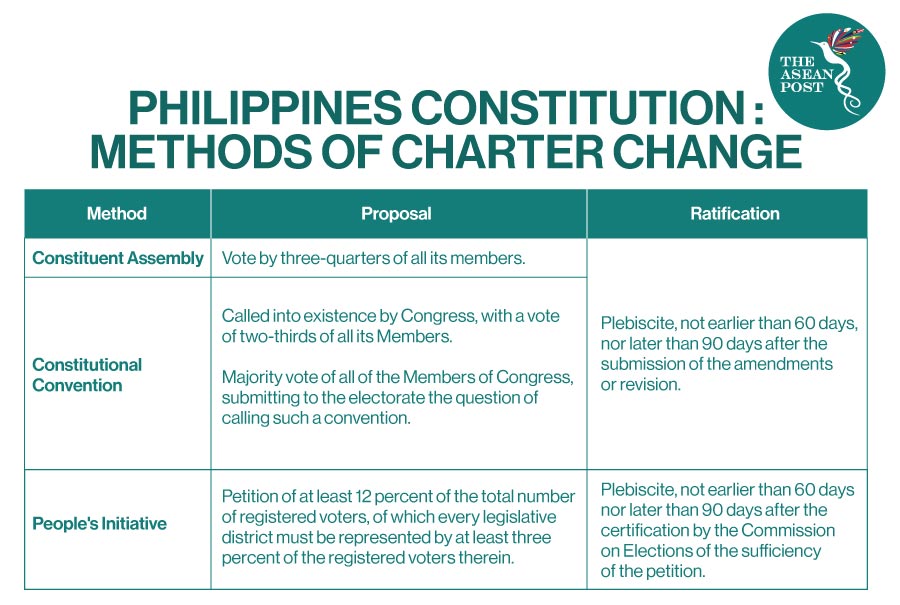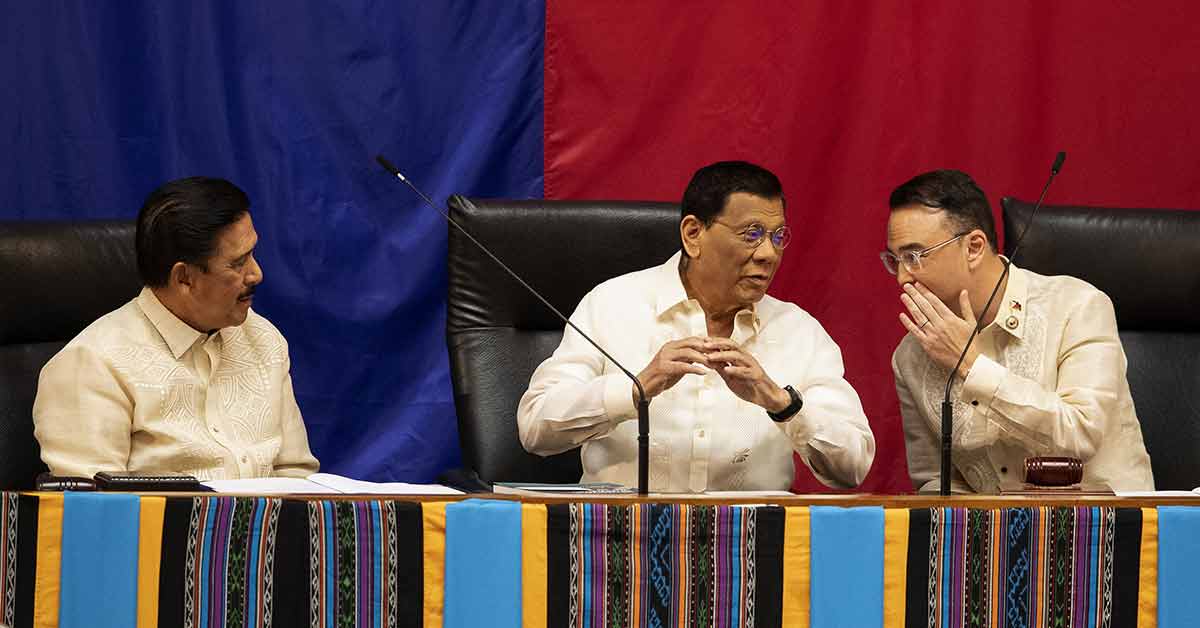The Philippine 1987 Constitution thus far has many provisions with strong restrictions on the flow of foreign capital in some areas of economic activities and these include: (a) the first provision concerning the prohibition to foreigners to own land; (b) the exclusion of foreigners from the exploitation of the country’s natural resources; and (c) the limitation placed on foreign capital in the public utility sector.
Under the 1987 Constitution of the Philippines, these limitations are not absolute. Foreign corporations are allowed to participate in these activities only if they have equity ownership within the maximum extent of 40 percent only. Meaning, foreign capital holders can only hold minority shares in the said economic activities. This means that foreigners can be engaged in any of the said economic activities if their investments are only up to 40 percent of the total equity ownership of the company.
Hence, the only corporations that are allowed to engage and operate in the said restricted areas of economic activity are those that are at least 60 percent Filipino owned and controlled.
Thus far, this existing scenario has hampered and impaired the country’s economic development over the years, which has been exacerbated by the economic devastation brought about by the COVID-19 pandemic.
Given the current economic challenges faced by the country as a result of the pandemic, it is but obvious that there is a need for more foreign capital to create and generate economic activities that will revive the economy faster, and take it to a higher level. Thus, with such a need for urgency, the said constitutional limitations have become undeservedly and disproportionately restrictive.
Hence, the recent initiative by some members of the House of Representatives and the Senate, to tackle constitutional amendments more specifically on the said restrictive economic provisions of the 1987 Philippine Constitution is somewhat a welcome and positive development especially for those who have been calling for these constitutional amendments.
Just recently, in the House of Representatives (HOR), House Speaker Lord Allan Velasco instructed members of Congress to discuss amending some economic provisions of the constitution when the chamber’s session resumes. Velasco’s proposed amendments centre on the lifting of several economic restrictions such as the limitations on foreign investments. A hearing in this regard has been scheduled for 13 January, 2021.
It can be recalled as well that in July 2019, Velasco filed a resolution proposing amendments to economic provisions, particularly easing limits on foreign ownership of land, natural resources, public utilities, mass media, and schools. The rationale behind these proposed charter amendments is to respond to the "mounting economic and health concerns" brought about by the coronavirus pandemic.
On the other hand, Senators Bato Dela Rosa and Francis Tolentino filed a resolution on 20 December, 2020 seeking changes to the provision on “democratic representation” of the 1987 Constitution; more specifically on the Party-List System (PLS). This is in addition to the proposed amendments on the economic provisions of the charter.
The two senators are also calling Congress to convene as a constituent assembly. To note, the constituent assembly is a term describing one of the three methods by which amendments to the 1987 Constitution of the Philippines may be proposed. The other two methods are the People’s Initiative (PI) and the Constitutional Convention.

All these require a majority vote in a national referendum. In a constituent assembly, members of the House of Representatives and the Senate will be convened and decide on constitutional amendments themselves.
While PI refers to the act of directly initiating statutes or calling for referenda on both, the national and local government levels by the Filipino people. Constitutional convention on the other hand refers to a nationwide election/selection of delegates who will draft the amendments.
Caveats, Pessimisms, And Oppositions
Nevertheless, Senate President Vicente “Tito” Sotto has informed the Filipino public that it’s too early to tell if the efforts of amending the charter will indeed prosper. He noted that a majority vote is needed to convene while a three-quarter majority vote is needed to approve constitutional amendments. The political opposition on the other hand is quite adamant about the proposition of amending the charter.
Senator Francis Pangilinan is questioning the timing of the said proposed charter amendments and he believes that these proposed amendments to the charter should be discussed first in a caucus by the senators. He said, “among the issues that can be discussed in the caucus would be the timing of the charter. Ngayon ba ang tamang panahon para pag-usapan ito? (Is this the right time to discuss this [charter change]?). In addition, is the matter of Congress voting or separately in proposing charter amendments?”
On the other hand, Senator Panfilo Lacson is quite sceptical that the proposed charter amendments will gain traction at all. "It's like taking one big step into a mousetrap, or even quicksand for that matter," he said.
Lacson also said that “all members of the Senate should discuss this matter very carefully before we even consider plenary debates on the said resolution.” Opposition senator Franklin Drilon expressed his pessimism saying that the proposal "will not fly in the Senate."
Hindsight And Perspective
As far as this issue of constitutional amendments is concerned, it is but imperative for the legislative branch to pave the way for the proposed amendments to the charter especially on the restrictive economic provisions against foreign capital because the current situation in the country calls for it.
In a time when the country is not only fighting the coronavirus but also trying to bounce back from the economic devastation brought about by the pandemic, it is important to lift or liberalise those constitutional economic provisions that are restrictive to foreign capital as this will help the Philippines grow and become more competitive globally, especially in attracting foreign direct investment (FDI).
The relaxation of these constitutional limitations on foreign capital will help take the economic performance of the country to new heights. To note, FDI is the fastest way to produce more capital to generate business opportunities, creating more economic activities, which will eventually raise the Philippine economy’s overall performance.
If this happens, it will make a huge difference in addressing the current economic challenges faced by the country because of the pandemic and will eventually make the financing of the country’s national development less burdensome.
Filipinos and policymakers alike must acknowledge the reality that opening the economy to a whole new level through the lifting of the constitutional limitations on foreign capital will pave the way for the Philippine economy to be integrated more into the global economy. The country’s competitive advantage and position will also be stronger and benefit the people.
However, the postponement or deferment in amending the said restrictive economic provisions of the 1987 Constitution will only put the country in a disadvantageous position vis-à-vis its neighbouring countries.
Even China which remains until today a politically strong, centralised country has opened its borders and its economic sectors to all possible foreign investors who are willing to do business with it. This move thus far has benefitted China to a greater extent economically speaking.
Also, given the limited time before the 2022 National Elections, fixing the economic provisions of the charter is not only urgent but the most pragmatic undertaking Filipino lawmakers could pursue in this time of the pandemic to help the economy recover faster. Lawmakers should take into considerations that these necessary constitutional amendments are a matter of national interest that needs to be carried out.
Conclusion
Amending the restrictive economic provision of the 1987 Constitution is without a doubt quite important for it does not only address the need of the moment but sets some of the necessary economic foundation and groundwork towards a more globally competitive, efficient, developed and prosperous Philippine economy.
Related Articles:

